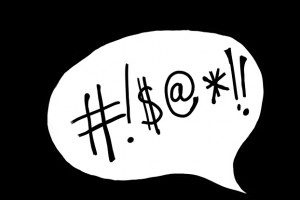
The caricatures of Mohammed, and of the “random Muslim dudes” often portrayed in the French magazine Charlie Hebdo that was the recent site of a terrible massacre, looked nothing like the terrorists who did the killing.
They do, however, resemble what it would look like if someone did a caricature of me. Or what my son might look like when he grows up.
Or Balbir Singh Sodhi — killed four days after 9/11 at his gas station in Arizona.
Or many of the victims of the Oak Creek massacre in 2012, where a gunman killed six people presumably because he thought they were Muslims.
Or many of the people who worship at the Edmonton Gurdwara that was vandalized last week.
It’s pretty tiresome that the only characterizations of anyone who looks kind of like me in pop culture (other than the occasional Waris Ahluwalia role) are usually a terrorist (cartoons), a buffoon (Bollywood), or a cab driver (Hollywood).
As a Sikh growing up in Canada, I have friends of many different faiths and backgrounds, and a large portion of my friends are white. And a lot of them have taken up the #JeSuisCharlie movement. Many have been expressing this support by re-posting some of the “offensive” cartoons.
I love my friends — they’re reasonable, liberal, forward thinking people. I’m also not one who looks at everything through the lens of “privilege” — sometimes things happen because they happen. But it’s impossible for me not to notice that most of the people most vocal about #JeSuisCharlie, and most vociferous in calling on people to re-post some of these offensive images, are middle class white males. They’ve almost never directly been at the receiving end of discrimination — it almost makes me want to use the hashtag #checkyourprivilege for the first time ever.
I’m against censorship — the government should be very limited in its ability to limit expression.
But I’m a proponent of self censorship. I can be in favor of a publication’s right to publish racist, sexist, homophobic cartoons — but I’m also free to think they’re assholes for doing so.
We should all be united in fighting extremists — Sikhs have been doing it for 500 years. I think it’s also possible to attack the perversion of Islam perpetrated by these terrorists without deliberately insulting and hurting millions (billions?) of Muslims. That takes real art and skill.
The rest of the Muslim community can think the terrorists are abhorrent — and still be upset at gratuitous propagation of hurtful images.
I’m not a Muslim, so I don’t have the same issue with physical depictions of Mohammed that many Muslims do. I do, however, feel that many of these depictions are used to make a point: “Look at this guy. He looks different than you and me. People who follow him are different than us.”
Constantly seeing caricatures of “the other” puts images in people’s heads of who exactly is “The other” — and classifying someone as “The Other” is the first step in dehumanizing them.
In the long run, that’s the lasting impact of these attacks, and the responses of many people. What used to be accepted as a responsibility to protect the right to offend seems to have become a responsibility to offend. “Let’s show those jerks what we think of their goofy religion.”
I won’t re-post those cartoons — because many of my friends will be hurt by it.
Taking into account other people’s feelings usually just feels like the right thing to do.
* * *
Gurmeet Singh Ahluwalia is a banker in Toronto. He is also co-founder and past chair of Sikhs Serving Canada, which has established two food bank locations serving over 400 families monthly in Mississauga, Ontario.












